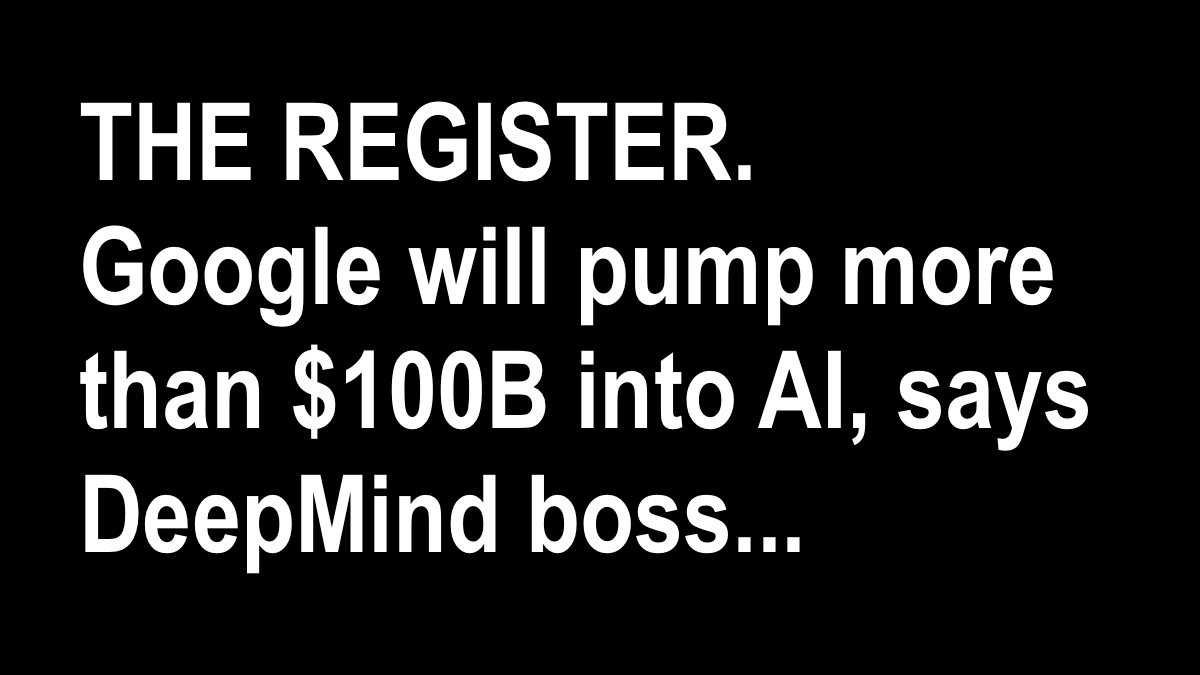THE REGISTER. Google will pump more than $100B into AI, says DeepMind boss. Not all at once, of course.
Matthew Connatser
17 Apr 2024
Google will eventually invest $100 billion in AI, according to DeepMind CEO Demis Hassabis.
The chief of DeepMind, which Google acquired in 2014, made his prediction on Monday during a TED conference in Vancouver, reported Bloomberg. Someone had asked Hassabis about the rumored $100 billion Stargate supercomputer that Google’s rivals Microsoft and OpenAI are apparently planning.
Hassabis simply replied: “We don’t talk about our specific numbers, but I think we’re investing more than that over time.” He didn’t specify how exactly Google would be spending that $100 billion or more, nor how quickly it would spend it, but he did insist that the Chocolate Factory’s processing prowess surpasses Microsoft’s – or anyone else’s.
One avenue for spending all that cash is likely on hardware – such as Google’s Axion CPUs based on the Arm architecture. It’s not clear what’s in these upcoming chips, but Google claims they’re 30 percent faster than “the fastest general purpose Arm-based instances” (likely a comparison to Ampere’s or Amazon’s latest CPUs), and 50 percent faster and 60 more efficient than x86-based processors from Intel and AMD. Of course, these are just Google’s claims and yet to be tested independently.
Some of this $100 billion budget will presumably be given to DeepMind, which engages with the software side of AI.
Some of DeepMind’s recent activities haven’t been too impressive. Research on AI-discovered materials apparently isn’t that useful, and its weather prediction model can’t replace traditional forecast methods according to DeepMind itself.
The outfit has, however, made progress on getting AI to acquire social skills – a significant step towards making AI even smarter.
But to achieve any of this, Hassabis explained that his team needs “a lot of compute” – which he says is “one of the reasons we teamed up with Google back in 2014.”
Google might not put $100 billion into a single supercomputer, but it is certainly adding more compute to its portfolio – such as with its upcoming $1B Kansas City datacenter.


